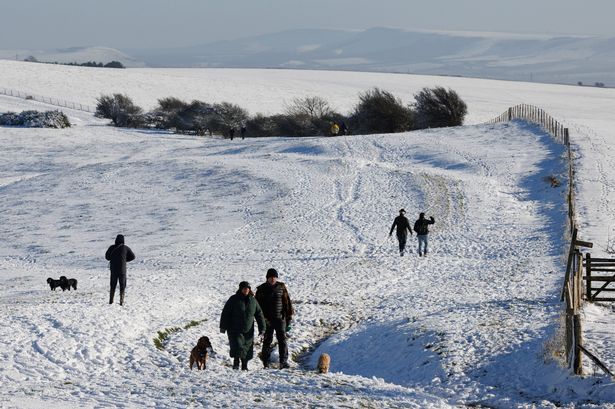The UK Health Security Agency (UKHSA) has issued a Level 2 (yellow) cold weather alert for most of England, signifying a period of low temperatures that could pose health risks, particularly for vulnerable populations. This alert system, part of the Cold Weather Plan for England, aims to minimize the harm caused by cold weather and ensure that appropriate support services are in place to protect those most at risk. The alert typically signals the need for social and healthcare services to be prepared for increased demand and to implement preventative measures to safeguard susceptible individuals. While not as severe as a Level 3 (amber) or Level 4 (red) alert, a Level 2 warning still highlights the potential for cold weather to exacerbate existing health conditions and increase the risk of illness.
The specific regions covered by the yellow alert encompass a substantial portion of England, reflecting the widespread nature of the anticipated cold snap. This extensive coverage underlines the importance of proactive measures to protect public health. The UKHSA’s alert calls for individuals, communities, and healthcare providers to be aware of the potential impact of the cold and to take appropriate precautions. The alert is particularly relevant for older adults, individuals with pre-existing health conditions such as heart or lung disease, and young children, all of whom are more susceptible to the adverse effects of cold weather. The UKHSA emphasizes the importance of checking on vulnerable friends, family members, and neighbours during cold spells.
The anticipated “minor impacts” on health and social services referenced in the alert indicate that the cold weather is expected to increase demand on healthcare resources, though likely not to an overwhelming degree. This could manifest as a rise in hospital admissions for respiratory illnesses, cardiovascular events, and falls, all of which are more common during periods of cold weather. Social services may also experience increased demand for support, particularly for those living in fuel poverty or experiencing homelessness. The “minor impacts” designation suggests that these increases are manageable within the existing capacity of the health and social care system, but vigilance and preparedness are crucial to ensure a timely and effective response.
The UKHSA provides specific recommendations for coping with cold weather. These include heating homes to at least 18°C, particularly for vulnerable individuals; wearing multiple layers of clothing to trap warm air; eating warm meals and drinking plenty of fluids to stay hydrated; and staying active indoors to maintain circulation. The guidance also emphasizes the importance of checking weather forecasts regularly and being aware of potential disruptions to travel and other services. For individuals experiencing fuel poverty, the UKHSA recommends seeking advice from energy providers or local councils about available support programs.
The Cold Weather Plan for England, under which the alert system operates, is a collaborative effort between government agencies, healthcare providers, and local authorities. It outlines a comprehensive strategy for mitigating the adverse effects of cold weather, encompassing public health messaging, service provision, and emergency response. The plan aims to ensure a coordinated and effective response to cold weather events, minimizing the impact on health and wellbeing. The issuance of a cold weather alert is a key component of this plan, triggering a cascade of actions to ensure preparedness and support for those most in need.
The UKHSA’s yellow cold weather alert serves as a timely reminder of the importance of preparedness and community support during the winter months. While the anticipated impacts are categorized as “minor,” the potential for cold weather to exacerbate existing health problems and create new challenges for vulnerable individuals should not be underestimated. By following the UKHSA’s guidance and checking on those in need, individuals and communities can contribute to a collective effort to minimize the harm caused by cold weather and ensure the wellbeing of all. The alert system represents a proactive approach to managing the health risks associated with winter weather and highlights the importance of ongoing vigilance and collaboration between various stakeholders.














